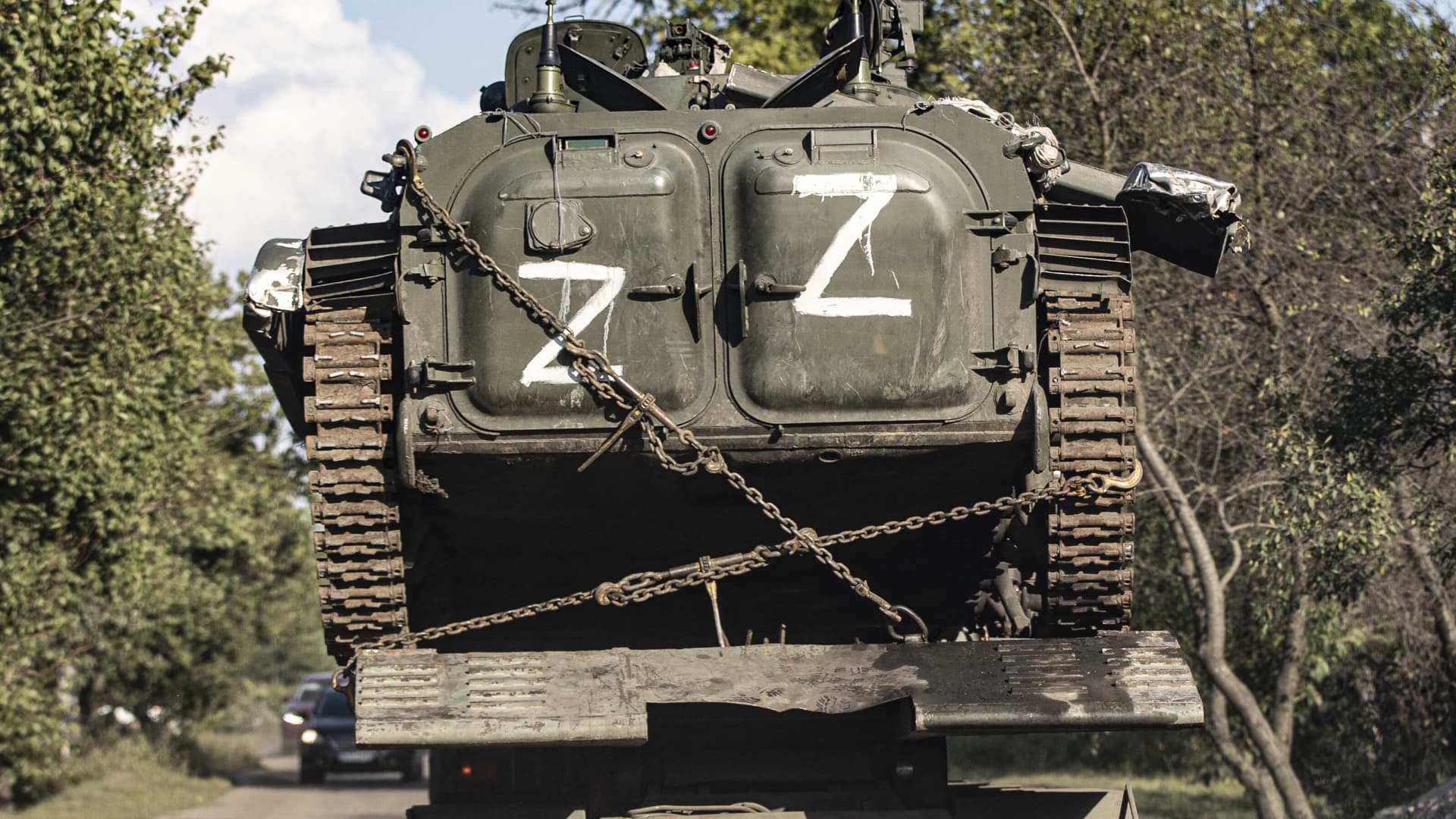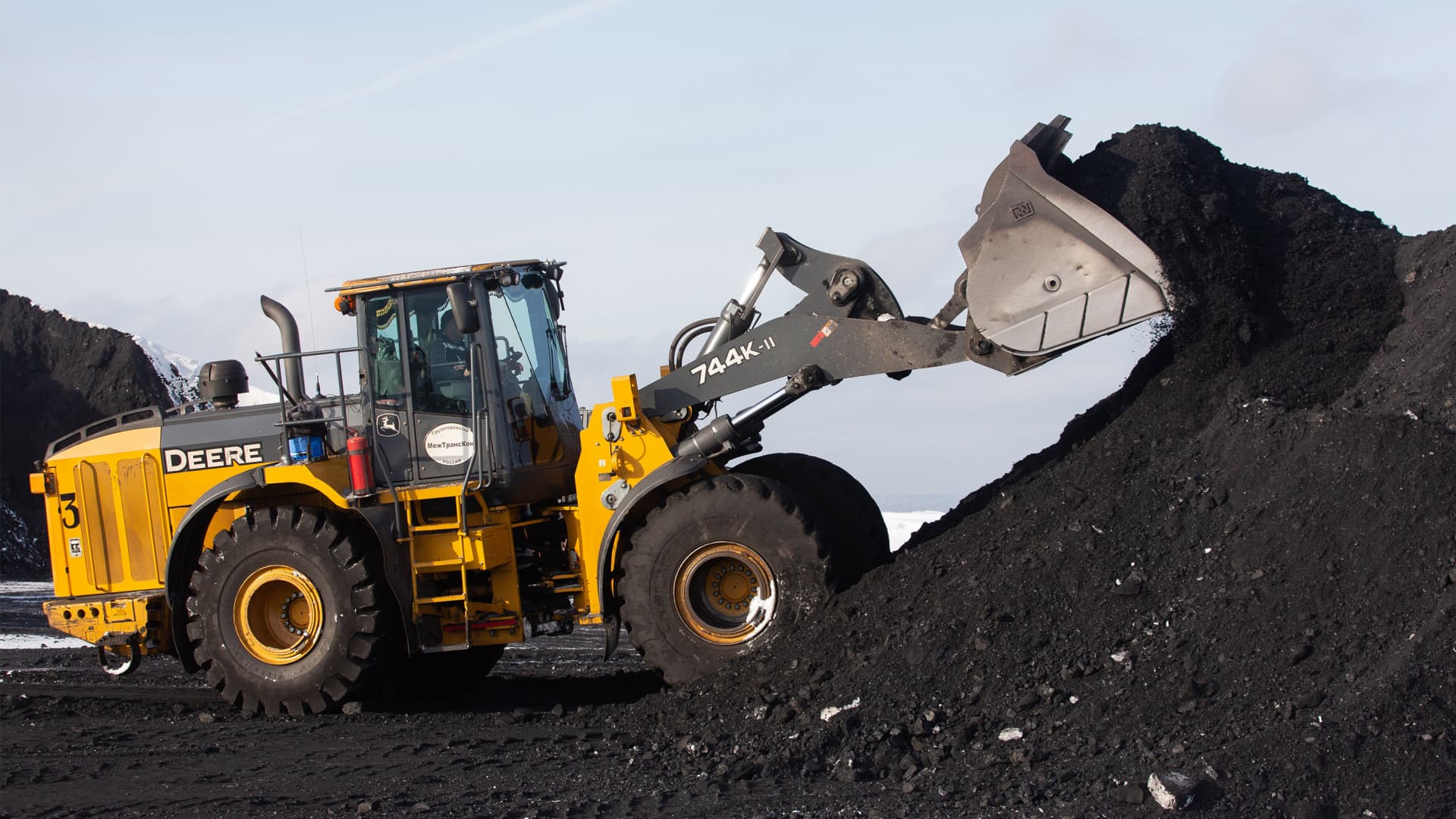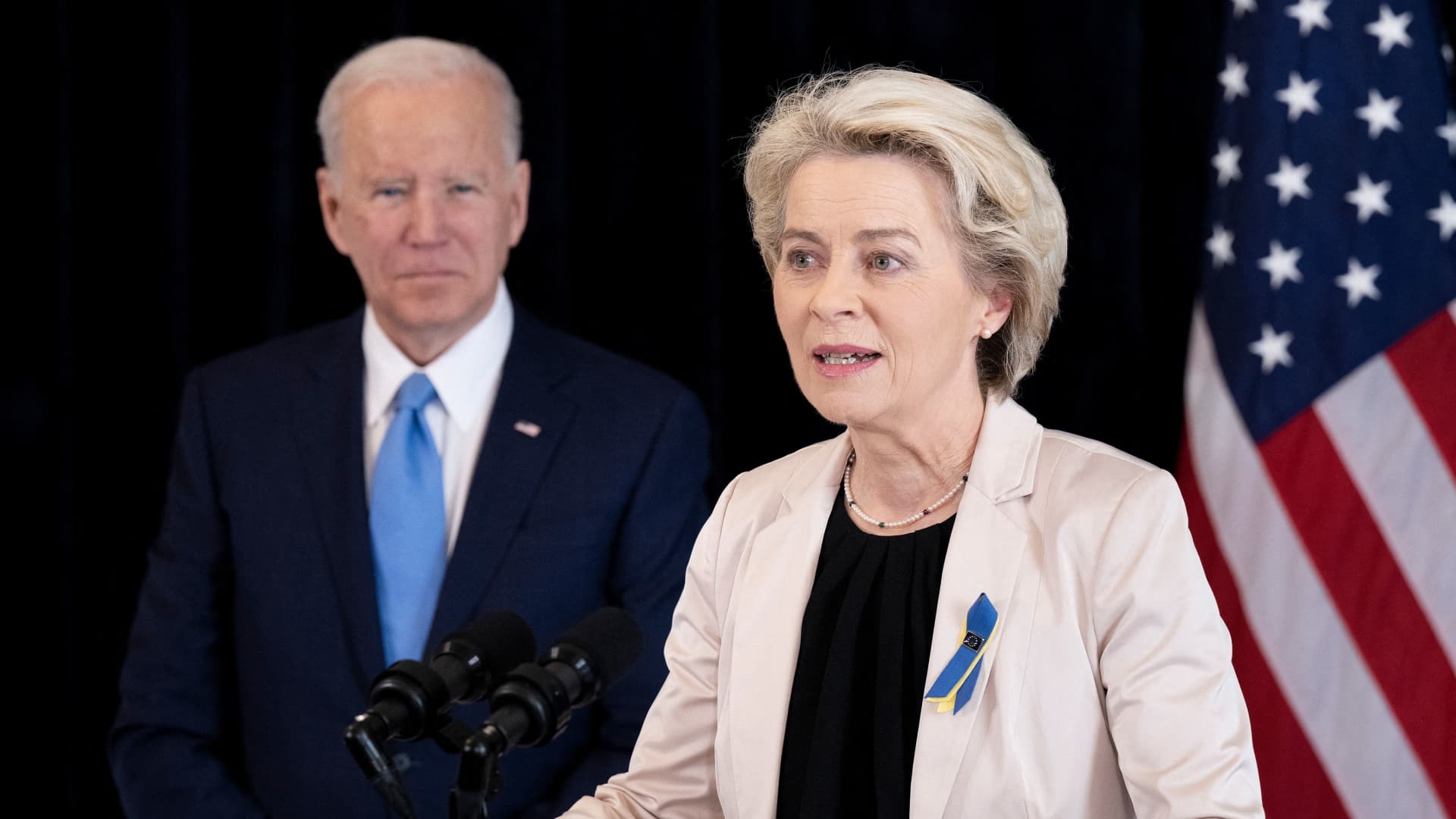Ukraine inflicts 'major operational defeat' on Russia as its forces retreat
Ukraine says it has recaptured dozens of towns and villages in the Kharkiv region, after Russian forces were caught off guard by a counteroffensive.

A military truck bearing Russia invasion forces' "Z" symbol lies blasted in the town of Balakliya, which Ukrainian troops liberated over the weekend.
Anadolu Agency | Anadolu Agency | Getty Images
Ukraine's surprise counterattack in the northeast of the country has sent shock waves through the Russian army, with military strategists saying occupying forces have likely been forced to pull out of the entire region around Kharkiv.
This crucial area is home to Ukraine's second-largest city and lies close to the border with Russia. This should have made it easier for Russia to defend, but Ukraine's Defense Ministry said Sunday that its forces had been able to recapture dozens of towns and villages in the area over the last few days.
These include the strategically important town of Izyum, which Russia had used as a base for its forces in the region, and Kupiansk, a key railway hub in the area.
The territorial gains for Ukraine come after its forces launched a series of counterattacks in the northeast last week. The surprise move caught Russia off guard; the Kremlin had redeployed many troops to southern Ukraine for a much-anticipated Ukrainian counteroffensive there.
Instead, strategists now widely believe that Ukraine had planned to use the Russian redeployment of troops as an opportunity to redouble its efforts in the northeast of the country.
Kharkiv matters
Kharkiv lies 30 miles from the Russian border, just above the strategically important Donbas area in eastern Ukraine where two pro-Russian, self-proclaimed "republics" are located, in Donetsk and Luhansk.
Despite this proximity, however, Moscow's forces have not been able to occupy the city since they started their unprovoked invasion of Ukraine on Feb. 24.
Since its initial wholescale attack on Ukraine was scaled back, with Russian forces withdrawing from the area around the capital Kyiv in April, Russia has claimed it wants to "liberate" the Donbas.
As such, the loss of key towns and villages in the Kharkiv region makes Russia's hold on territory in Luhansk (which it claims to fully occupy) and Donetsk (where it has made small advances over the summer) more vulnerable, and casts further doubt on Moscow's ability to achieve its aim in the Donbas.
For its part, Ukraine has repeatedly reiterated that it aims to reclaim all its lost territory including the Donbas and Crimea, which Russia annexed in 2014.
Strategists at the Institute for the Study of War noted on Sunday that, "Ukrainian leaders discussed the strikes in the south much more ostentatiously, however, successfully confusing the Russians about their intentions in Kharkiv Oblast [province]."
It noted that Ukraine had executed a "skillful campaign," maximizing the impact of Western weapons systems such as HIMARS (High Mobility Artillery Rocket Systems, donated by the U.S.) to attack Russian ground lines of communication in both Kharkiv and Kherson.
A Russian armored vehicle that was captured by Ukrainian troops is hauled out of Kharkiv on Sept. 8, 2022.
Metin Atkas | Anadolu Agency | Getty Images
On Sunday, Ukraine's Ministry of Defense said the counteroffensive was ongoing, while the commander in chief of Ukraine's armed forces, Gen. Valeriy Zaluzhnyi, said forces had reclaimed 3,000 square kilometers (around 1,158 square miles) of Russian-occupied territory already this month, and are now pushing Russian forces back toward the border with Ukraine.
"In the Kharkiv direction, we began to advance not only to the south and east, but also to the north," Zaluzhnyi said, adding that Ukrainian forces are now about 50 kilometers (around 30 miles) from the Russian border.
Russians 'retreating'
Russian troops stationed at Balakleya and Izyum had regrouped and been redeployed in the direction of Donetsk in order to "boost efforts" there, Russian Defense Ministry spokesman Igor Konashenkov told reporters Saturday, according to Russian state news agency Tass.
The U.K.'s Ministry of Defense noted Monday that Russian troops were likely retreating from much of the Kharkiv region, although pockets of resistance remained.
"In the face of Ukrainian advances, Russia has likely ordered the withdrawal of its troops from the entirety of occupied Kharkiv Oblast west of the Oskil River," the ministry said on Twitter, adding that since the counterattacks began in earnest last Wednesday, "Ukraine has recaptured territory at least twice the size of Greater London."
The 'Z', the symbol of the Russian forces, and the inscription 'ZSU', which is the abbreviation of the initials of the Ukrainian Armed Forces in Cyrillic alphabet, is seen on a military vehicle as Russia-Ukraine war continues in Kharkiv, Ukraine on September 09, 2022.
Metin Aktas | Anadolu Agency | Getty Images
Strategists have said that while Ukraine appears to have used Russia's redeployment of troops to the south as an opportunity to attack in the northeast, its counteroffensive around Kherson in the south is not a "feint" or mock attack designed to distract attention.
"Ukrainian forces have reportedly attacked and made gains at several important locations on the western bank of the Dnipro River," the Institute for the Study of War noted Sunday, adding that, "Ukraine has committed considerable combat power and focused a significant portion of the Western-supplied long-range precision systems it has to this axis, and it is not likely to have done so merely to draw Russian forces to the area."
What happens next?
Military strategists are keen to point out that while Ukraine has been successful in its initial counteroffensives both in the northeast and south of the country, the war is nowhere near an end.
Dmitry Gorenburg, senior research scientist at the security research and analysis organization CNA, said that Russian commanders would be reluctant to withdraw their forces from occupied territory — even in a bid to preserve those forces. This would be a "political black eye" for Moscow, he told CNBC.
"It really seems like the Russian forces have exhausted themselves in terms of their ability to to make advances. They haven't really gained any territory to speak of since since that last push in Luhansk in late June, early July," Gorenburg noted. On the other hand, Ukraine is likely to make "continued efforts" to regain territory, he added. "They see this as a long-term gradual process."
This photograph shows a destroyed Russian military vehicle in Balakliya, a town in the Kharkiv region that was recaptured by Ukrainian forces.
Juan Barreto | Afp | Getty Images
The U.K.'s Defense Ministry said in its assessment of the situation that "the rapid Ukrainian successes have significant implications for Russia's overall operational design" with the majority of the forces in Ukraine "highly likely being forced to prioritise emergency defensive actions."
"The already limited trust deployed troops have in Russia's senior military leadership is likely to deteriorate further," the ministry added.
Ukraine's pressure on Russian forces in Kherson, combined with the rapid counteroffensive in Kharkiv, "presents the Russians with a terrible dilemma of time and space," according to analysis by the Institute for the Study of War. It said Russia could risk losing Luhansk, as well as having to retreat from neighboring Donetsk.

"Russian President Vladimir Putin risks making a common but deadly mistake by waiting too long to order reinforcements to the Luhansk line, thereby compromising the defense of Kherson or ending offensive operations around Bakhmut [a city in the Donetsk region] and Donetsk City without getting troops into position to defend against continuing Ukrainian attacks in Luhansk in time," the ISW said.
"The Ukrainian campaign appears intended to present Putin with precisely such a dilemma and to benefit from almost any decision he makes."

 Aliver
Aliver 































